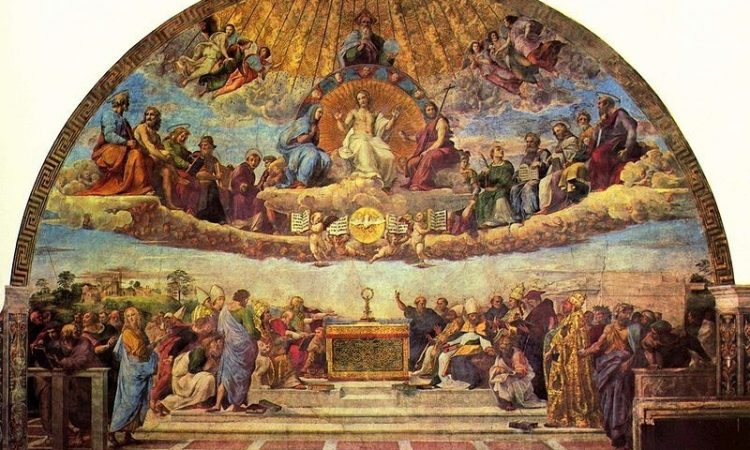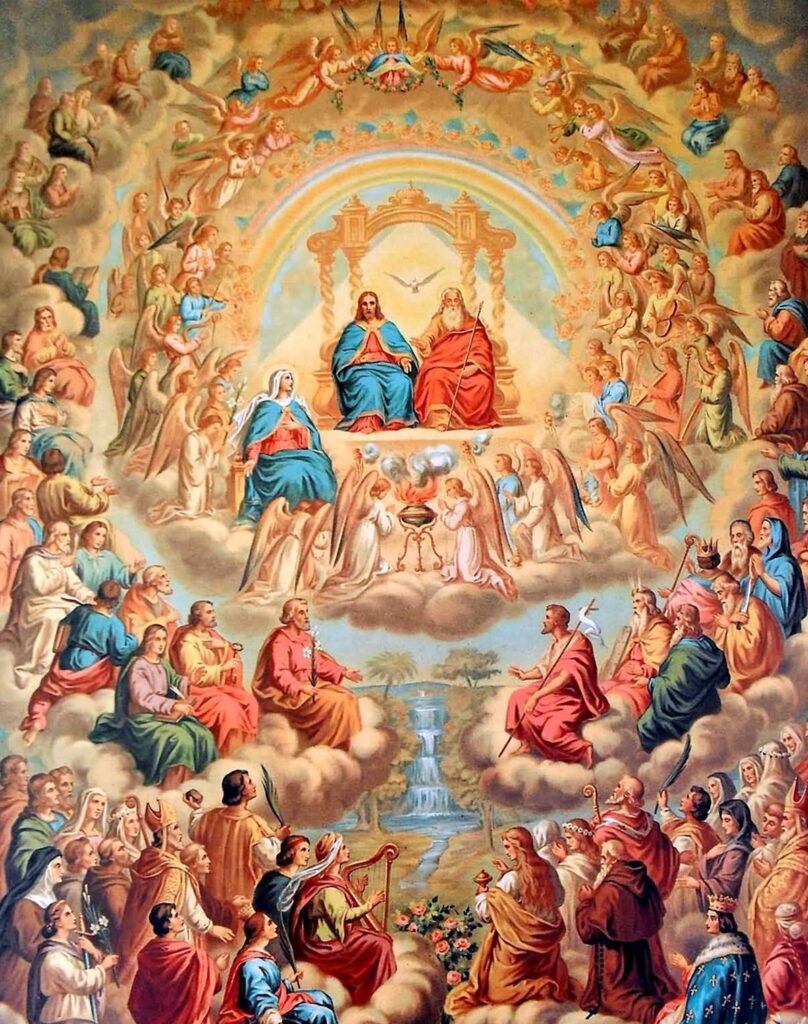Paschal M. Corby OFM Conv.
Gaudeámus omnes in Dómino, diem festum celebrántes sub honóre Sanctórum ómnium: de quorum solemnitáte gaudent Ángeli, et colláudant Fílium Dei.
(Let us all rejoice in the Lord, celebrating a festival-day in honour of all the Saints: at whose solemnity the Angels rejoice, and give praise to the Son of God.)
The annual Solemnity of All Saints is for us an important reminder of those men and women, outstanding in virtue, who have gone before us in faith. We rejoice in their exaltation in the glory of heaven, and rely on their sure intercession before the throne of God. In the ancient liturgy we pray to our Eternal Father, that with so many praying for us, He might pour out upon us the abundance of His mercy for which we long. In our Catholic Tradition, we have always insisted on this close connection between the faithful on earth and the saints in glory. In forming one Body of Christ, we exist as a communion of love and grace.
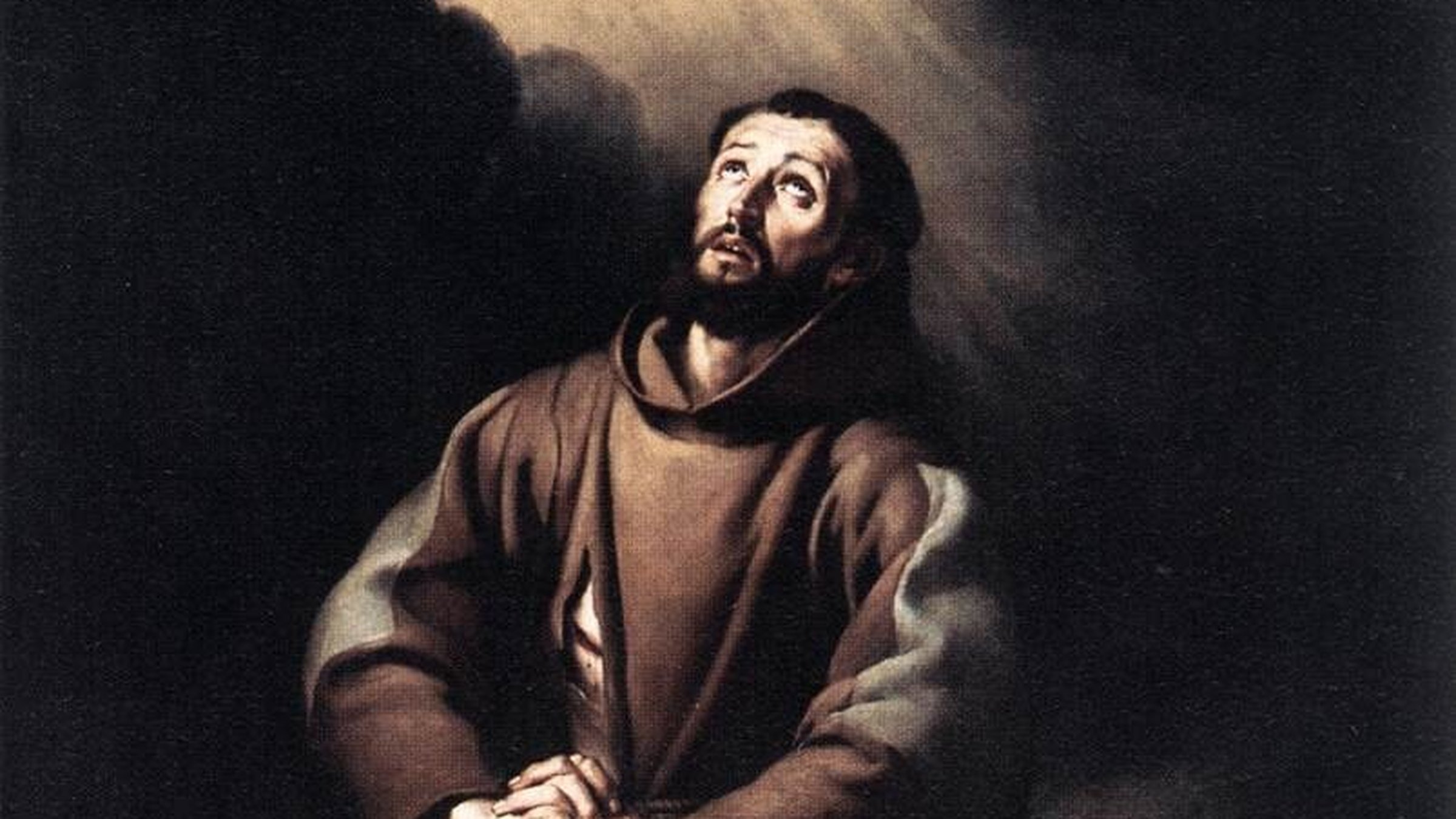
In this immediacy of the saints, we are encouraged to know their stories and rely on their help. However, if that’s were our devotion were to end, the saints would be of no real value to us. To this end, Saint Francis of Assisi admonishes:
The Lord’s sheep followed Him in tribulation and persecution, in shame and hunger, in weakness and temptation, and in other ways; and for these things they received eternal life from the Lord.
Therefore, it is a great shame for us, the servants of God, that the saints have accomplished great things and we want only to receive glory and honour by recounting them (Admonition VI).
In simple words, Saint Francis is warns us that there is no merit in recalling the lives of the saints, and basking in their glory, if we neglect to imitate their example.
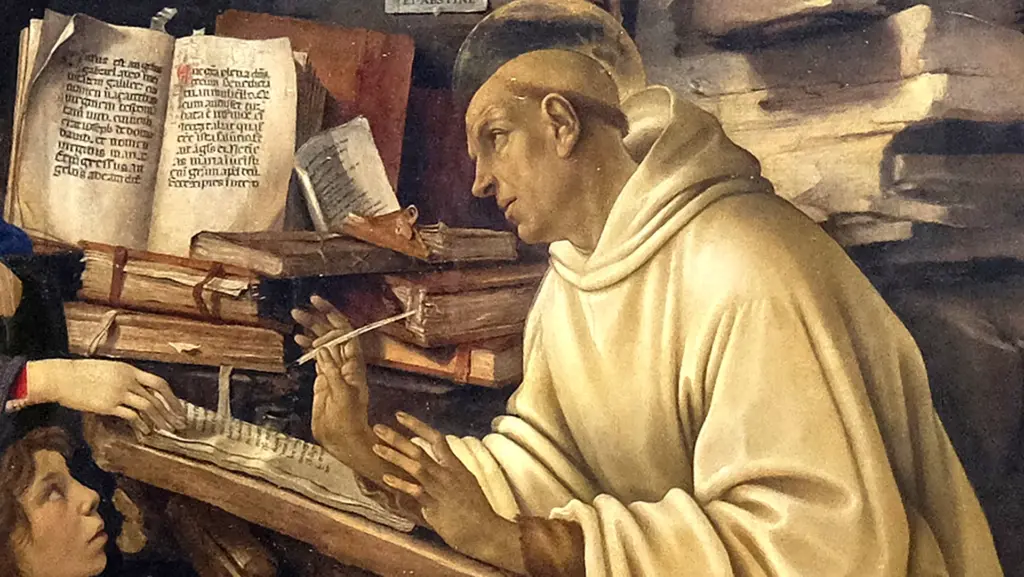
Another saint, Bernard of Clarivaux, says something similar. “The Saints have no need of honour from us; neither does our devotion add the slightest thing to what is theirs. Clearly, if we venerate their memory, it serves us, not them” (Sermo 2: Opera omnia). To what end should our veneration of the saints serve us? It should inflame us with a tremendous yearning, says Saint Bernard. “Calling the saints to mind inspires, or rather arouses in us, above all else, a longing to enjoy their company, so desirable in itself. We long to share in the citizenship of heaven, to dwell with the spirits of the blessed, to join the assembly of patriarchs, the ranks of the prophets, the council of apostles, the great host of martyrs, the noble company of confessors and the choir of virgins. In short, we long to be united in happiness with all the saints.”
This, then, should be our attitude in celebrating the Solemnity of All Saints – looking at their shining example as to reawaken within us the great longing to be like them; happy to live close to God. In their holiness, the saints are to be imitated, not just admired. They show us what is possible within human nature by the power of God’s grace. They remind us of our call to holiness; that we are all called to be saints.
In this light we recall that at the beginning of Christianity, all the members of the Church were called ‘saints’ – saints because Baptism unites us to our Lord and to his Paschal Mystery. The image from the book of the Apocalypse of those dressed in white robes, washed clean in the blood of the Lamb, is a symbol those who have been baptised – baptised into Christ’s death, as Saint Paul puts it, to be raised to life with him (Romans 6:4-5). Through the grace of Baptism we have been sanctified, divinised, made holy.
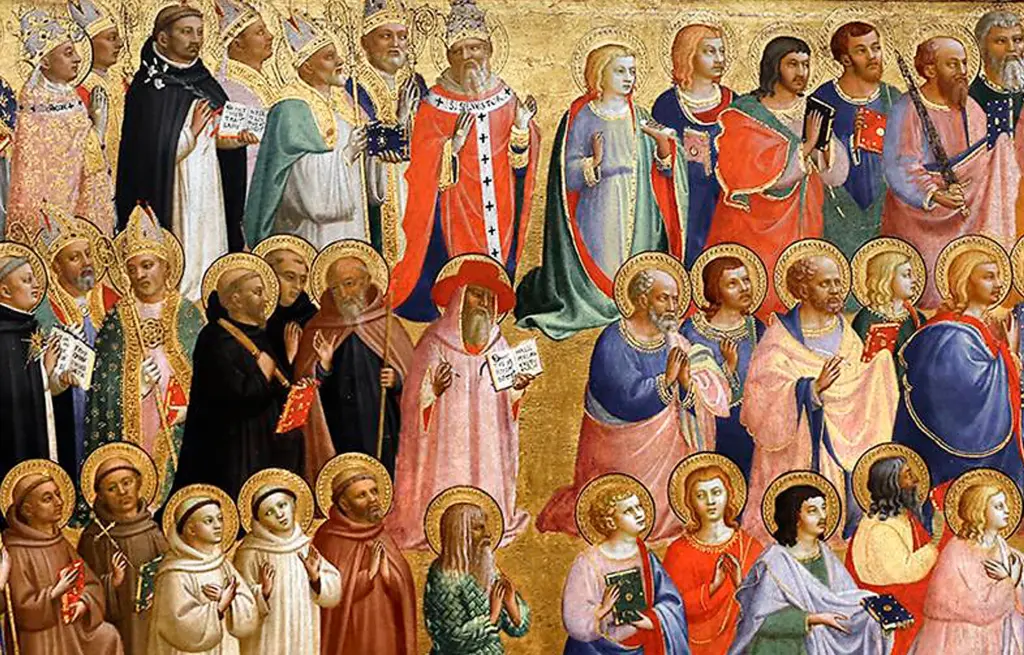
To become saints, in the conventional understanding of the term, simply means to fulfil what we already are; to become holy by conforming ourselves every more closely to Christ. As Saint John says:
My dear people, we are already the children of God but what we are to be in the future has not yet been revealed; all we know is, that when it is revealed we shall be like him because we shall see him as he really is (1 John 3:2).
This divinely revealed end is the vocation of every soul. Sometimes we think that holiness is a privileged condition reserved for a few. But in reality, becoming holy is every Christian’s task; indeed, the end of every person. All human beings are called to holiness – that is, to live as children of God, in the ‘likeness’ to Him in whom we were created; to live in the dependence of our relationship to our Creator, in communion with the all the saints.
We are reassured that to be a saint requires neither extraordinary works nor the possession of exceptional talents. It is necessary first of all to unite ourselves to Christ and to follow Him by taking up our cross. The lives of the Saints show that every form of holiness, even if it follows different paths, always passes through the Way of the Cross; the way of self-denial.
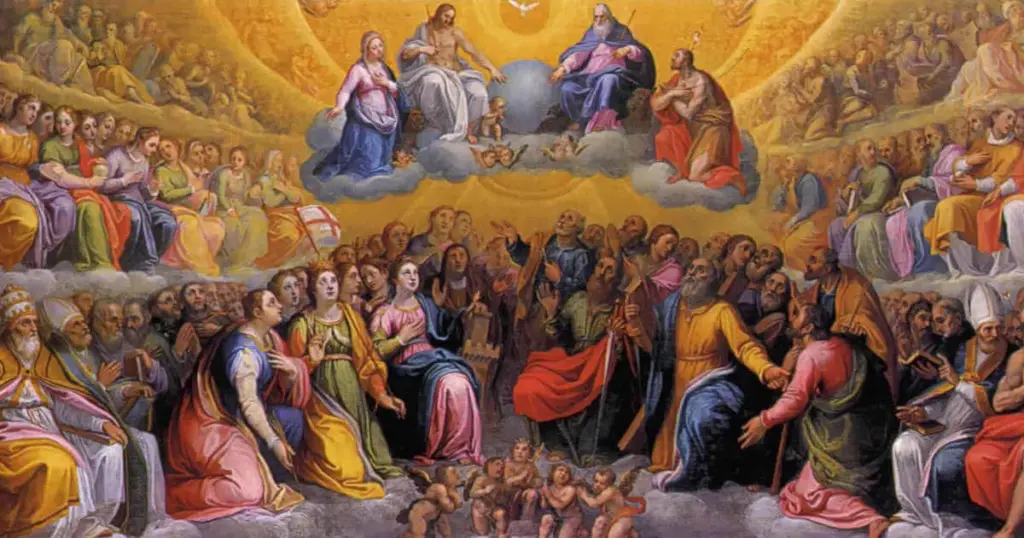
The biographies of the Saints describe men and women who, docile to the divine plan, sometimes faced unspeakable trials and suffering, persecution and martyrdom. But in the face of such trials they persevered in their commitment to follow Christ. ‘They have come out of the great tribulation’, we read in the Book of the Apocalypse; ‘they have washed their robes and made them white in the blood of the Lamb’ (Rev 7:14). To the extent that we, like them, follow Christ – each one in his own circumstances – we too can hope to share in their blessedness.
In her wisdom, the Church has placed the feast of All Saints in close proximity to the commemoration of All Souls. The ‘gap’ that exists between what we are called to become, and what we are, makes us appreciate that we need to be purified of all that prevents us from reflecting the face of God. But in the communion of saints, we acknowledge that our prayer and sacrifices, especially those offered in the Holy Sacrifice of the Mass, benefit those who go before us; and that they in turn intercede for us who remain in this vale of tears. Our prayer of praise to God is united with the prayers of suffrage for all who have preceded us in passing from this world to eternal life.
We therefore look to the saints for their holy example and powerful intercession. With them we are encouraged to walk more enthusiastically on the path of holiness. We entrust ourselves to their intercession, that with their help we might attain the blessedness for which we were created, and join them in forever singing the praises of God.
